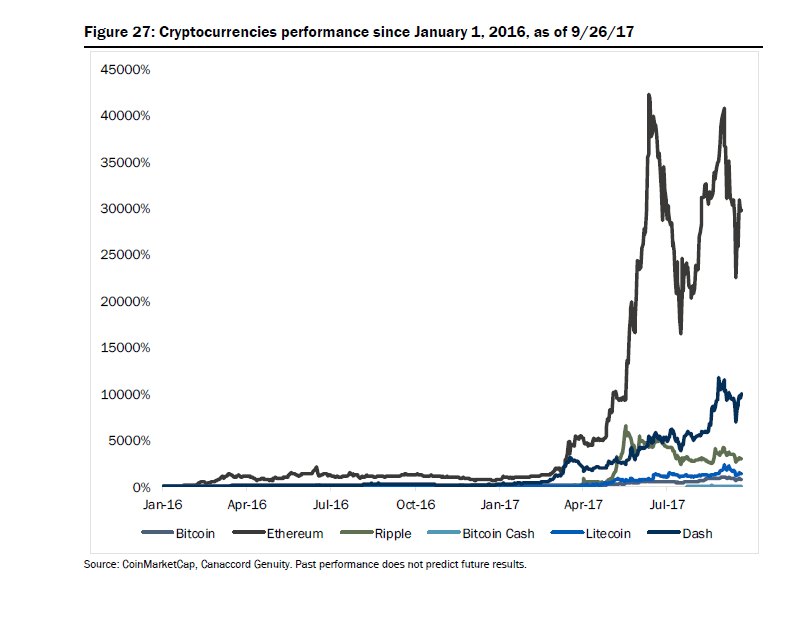Which US regulator is in charge of monitoring cryptocurrencies? That issue came to the fore as the Commodity Futures Trading Commission is apparently investigating a June 21 “flash crash” in the cryptocurrency Ether, according to a Bloomberg report. A top regulatory lawyer doesn’t see the regulator jurisdiction issue as a binary outcome, however. The CFTC is formally asking Coinbase’s GDAX, a popular digital-coin exchange, to explain how a cryptocurrency on the exchange could fall from $317.81 to $0.10 in a matter of milliseconds before recovering, Bloomberg reported, citing two people familiar with the matter.

After the crash, GDAX reimbursed customers who lost money when an unidentified market participant placed a $12.5 million dollar sell order. Filling the order caused the cryptocurrency to fall 30% initially, which in term hit stop losses and margin requirement liquidation, which drove the price lower.
The CFTC is particularly investigating the amount of leverage that the exchange allowed traders to use. In March of this year, GDAX allowed traders to utilize margin, a common tool in listed derivatives trading that amplifies leverage, but then discontinued the practice in June after the crash.
The CFTC investigation is particularly noteworthy because GDAX is not registered with the CFTC, but rather on a state by state basis. The company said in a statement to Bloomberg that after the flash crash it “proactively reached out to a number of regulators, including the CFTC,” but they are unaware of a formal investigation.
“The CFTC has potentially very broad authority in the cryptocurrency space,” explained Gary DeWaal, a regulatory lawyer in New York with Katten Muchin Rosenman. “It likely has exclusive jurisdiction over all derivatives based on cryptocurrencies and non-exclusive jurisdiction over entities that potentially manipulate spot bitcoin as well as persons that sell bitcoin to the retail public with financing arrangements.”
Both the CFTC and Securities and Exchange Commission have been wrestling with how to police digital currencies. DeWaal notes the CFTC has brought legal actions against a number of cryptocurrency cases and also approved one derivative trading facility and clearing organization, LedgerX. The SEC has brought cases for fraud in the Bitcoin space and “seems to be struggling to develop a legitimate path for entities to leverage in the Bitcon space,” pointing to the denial of Bats exchange application to trade the Winklevoss’s Bitcoin ETP. Likewise, last week Grayscale withdrew a similar application, presumably in the face of SEC resistance, DeWaal said.
SEC Chair Jay Clayton told lawmakers the cryptocurrency market was “probably full of fraud.” The securities regulator has focused on Initial Coin Offerings (ICOs), saying they look very similar in purpose to Initial Public Offerings (IPOs) and might need applicable regulation. The problem from a regulatory jurisdiction standpoint might also occur because some cryptocurrencies may be securities according to the recent SEC finding that certain DAO tokens were actually securities.
The CFTC, which has full jurisdiction over Bitcoin futures and options trading, has a previous history stepping in where margin usage has been a question. It previously fined Bitfinex, a smaller cryptocurrency exchange, for allowing investors that were not suitable under the $10 million threshold to make margin trades. The exchange also didn’t deliver some bitcoins that investors had bought using leverage within a required timeframe and paid a $75,000 fine to settle the case without admitting or denying the allegations.
“In this case, the SEC and CFTC likely share jurisdiction when there are derivatives based on such digital tokens,” DeWaal said. “However, how they might share jurisdiction is unclear, and digital tokens are chameleon-like: they may be issued as a security but over time morph into a medium of exchange and store of value. Ethereum is an example of this.
